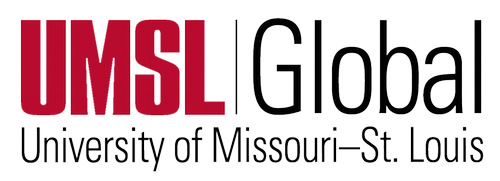All UMSL Eduction Abroad participants are required to participate in a study abroad orientation that covers topics such as health, safety, cultural and legal differences, travel, money, and more. The resources below will introduce you to some of the policies and resources with regards to health and safety while studying abroad with UMSL.
If you find yourself in an emergency while abroad, use the procedures listed on the Emergency Procedures tab.
Every student going abroad through UMSL Global will have two types of insurance.
- Health Insurance: GeoBlue provides comprehensive 24-hour health insurance for all UMSL students going abroad.
- Emergency Evacuation/Security Insurance: UHC Global provides 24-hour emergency and security insurance. (Don’t apply yet – you’ll do that through your program application).
Of course there is crime everywhere in the world. However, the crime that a study abroad participant is likely to be a victim of (if any) is usually of the non-violent type: pick pocketing, theft, etc. A few common sense measures can minimize your risks of being the victim of a crime: travel in groups, do not call attention to yourself by clothing or mannerisms, be especially wary in tourist locations, and do not participate in political or social demonstrations. Use resources like the US Department of State Travel Homepage to learn more about your destination before you go.
Universities throughout the world are certainly cognizant of dangers and have implemented their own policies and procedures to ensure a safe and healthy experience for all their international students. Check with the international office of the host institution or your faculty director and ask for assistance if necessary. Also, know what the emergency number is for the country (remember, it is not 911 for every country). We will cover many of these issues during the orientation.
Study abroad represents an amazing opportunity to earn credit while exploring a different culture. As you prepare to navigate new surroundings, you must keep in mind that not all countries have the same amenities that you may be used to in the United States. The following is a list of activities that participants on many program are expected to do:
- Walk unassisted for about 2-5 miles daily at a reasonable pace.
- Walk unassisted on uneven surfaces such as cobblestones or stairs at ancient sites.
- Climb stairs unassisted (e.g., in an underground metro system or in lodgings).
- Carry your luggage and maneuver it on your own up and down flights of stairs if/when elevators are not accessible and onto public transportation such as buses, trains, and taxis
- Tolerate warm temperatures without air conditioning.
- Cope with the stressors of international travel (e.g., independent travel, language barriers, getting lost, being pressed for time).
- Adapt to unfamiliar surroundings and circumstances.
- Interact with people from different cultures and backgrounds.
If you feel you may need assistance with any of these activities, contact a study abroad coordinator as soon as possible to discuss if reasonable accommodations are possible.
Learn about your host culture
It is important to become culturally aware about your host country. If you have never been to your host country before, how do you know what is appropriate and what is not? We have some resources below that may help you learn more about your country’s social customs, etiquette, and daily cultural life.
- Culture Crossing Guide: Learn basic customs and social forms from a community-based resource.
- Become friends with local students:If you get to pick housing with local students or with other international students, consider picking the former in order to learn more about your host country and to become more comfortable in your new home. You may also find valuable travel buddies. Going on weekend trips solo can be fun and a great learning experience, but you are almost always guaranteed to have more fun with a few other people.
Legal issues
While abroad, students must live according to the laws and regulations of the host country. In case of a dispute, ignorance of local law is no defense. Some countries' laws are very different from US laws, especially regarding drug use, drinking, and driving under the influence of alcohol. Legal procedures also vary from nation to nation, and rights assumed in the US are not always granted in other countries. The US embassy may assist students in finding legal representation but cannot get a student out of jail once he/she has been accused of or arrested for a crime.
Other Important Resources
- State Department Smart Traveler Enrollment Program (STEP): All UMSL students of American citizenship or permanent residency are expected enroll in the Smart Traveler Enrollment Program (STEP) as part of their program acceptance process.STEP is a free service to allow US citizens and nationals traveling abroad to enroll their trip with the nearest US Embassy or Consulate. By enrolling in STEP, you will receive important information from the Embassy about safety conditions in your destination country; help the US Embassy contact you in an emergency (including natural disasters, civil unrest, or family emergencies); and help family and friends get in touch with you in an emergency. If you are not a US citizen or national, please contact your home country embassy or consulate for information on their travel registration processes.
- Travel Advisories: In accordance with the UM System Guideline on Student International Travel, the University of Missouri-St. Louis does not support travel to countries for which the US Department of State has issued Travel Advisories of Level 3 or 4. Additionally, UMSL does not support individual students traveling to Level 2 countries that have areas that are considered Level 3 or 4. In an effort to ensure the health, safety, and security of its students and constituents, UMSL Global adheres to these recommendations. If a student or constituent chooses to study in one of these countries against the advice of the University, he or she must take a leave of absence and will not have access to university support, resources, or facilities during that time. Students returning to UMSL will need to apply for readmission and will not be granted prior credit approval.
- The Centers for Disease Control and Prevention (CDC): The CDC has two websites that are useful to study abroad students.
- The Traveler’s Health site allows you to learn about what immunizations are needed as well as what health concerns there are in your host country.
- The Health and Safety for Students page gives advice that is applicable to all students traveling abroad.
- Passports:
- All individuals traveling in and out of the United States are required to have a passport; therefore, it is advised that you apply for a passport as soon as you have decided to study abroad.
- Generally, US passports are valid for ten years and must be valid for up to a minimum of six months past your return date from abroad.
- Regular passport processing times are typically 4-6 weeks, though it can take longer during busy times of year. Expedited passport services are available for an additional fee.
- Visas: In many countries students are required to obtain a visa in order to study. Consult your host country’s embassy or consulate website to find out its requirements.
- The average time it takes to process a visa and the application process varies.
- For some countries, a student needs to appear in person to obtain his or her visa. However, for others they may be able to mail their application or use a visa service that acts as a stand-in for the student.
- Each country will have different requirements; however, these items are often required:
- Passport photos
- Application fee (cashier’s check or money order)
- Proof of sufficient funds to support the student while abroad
- Proof of enrollment (provided by your host university)
- Proof of housing in country
- Fingerprints or other biometrics, etc.
- In some cases, students will need to show that they do not have a criminal background. Depending on the country this may be done through their local police station; some countries specifically require an FBI background check.
- It is the sole responsibility of the student to determine whether he or she needs a visa, to gather the information, and to apply. The Education Abroad coordinators are unable to advise on visa-related questions but may be able to assist students in finding information online; it does not help if we call consulates or embassies on your behalf.



